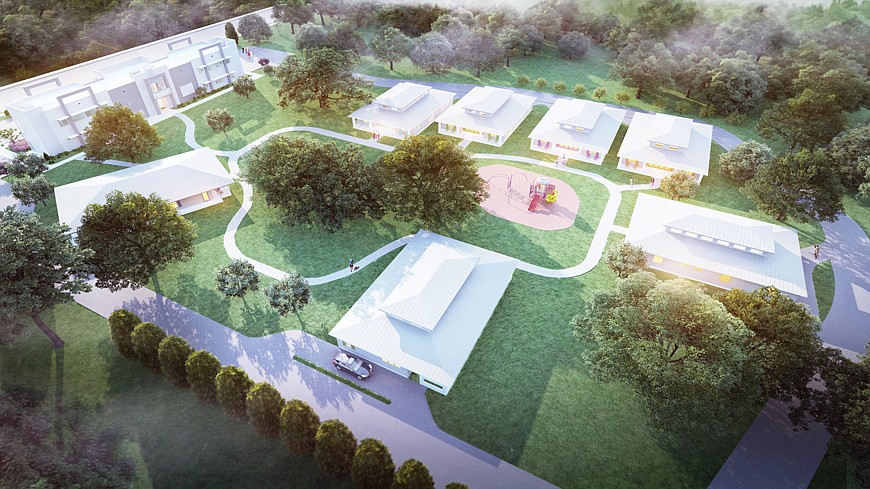- May 16, 2025
-
-
Loading

Loading

The 12th Judicial Circuit Court, which covers Sarasota, Manatee and Desoto counties, ranks among the top three circuits in Florida for having the most child removals from their homes. And to make matters worse, there is a critical shortage of foster parents to take in these desperate children.
It’s a double whammy — more tragedies linked to the opioid crisis.
The good news is: Local organizations and philanthropists are springing to action to help.
But first, the picture in numbers: According to Brena Slater, vice president of Community Based Care for the Sarasota YMCA/Safe Children Coalition, before 2015, 12th Judicial Circuit investigators removed between 30 to 40 children every month, with 900 children altogether under supervision of the Sarasota YMCA/Safe Children Coalition.
But in 2015, the numbers began ratcheting up. There were months when more than 100 children were removed. And for the past three years, the court has averaged 70 to 80 children removed a month, twice the average over the prior 15 years. The opioid crisis.
Currently more than 1,500 children in Sarasota, Manatee and DeSoto counties have been removed from their homes because of allegations of abuse, neglect or abandonment and are placed into the state’s foster care system.
For many, myself included, just the idea of becoming a foster parent is daunting. Think about it. Being a parent is hard. Being a parent is also a great blessing. There is no love like the love a parent has for her child. But try imagining being a foster parent.
Every year I attend the Children’s Guardian Fund’s annual luncheon, which raises funds to meet emergency needs and enable normalcy in the lives of children in foster and state care in Florida’s 12th Judicial Circuit. You hear about the extreme need in the child welfare system.
Hearing the stories of the selfless and tireless work of Guardian Ad Litem volunteers and success stories of children who have made it through the system always makes me think: I can do this. We have the means and a nurturing home that could accommodate a disadvantaged child. I want to help, but there is always this: Fear. Fear of the unknown. How do I know if I can nurture a traumatized child when I’m not sure about the job I’m doing with my own?
This is not an uncommon feeling, says Lucia Branton, executive director of the All Star Children’s Foundation. Middle-class families with the means to accommodate a child are not sure they want to expose their families to the complex layers of issues that foster children encounter. They feel ill-equipped and don’t know what effects serving as foster parents will have on their family.
Add to this our region’s demographics. Retirees — roughly 30% of the population — have already raised their families and are ready to relax and enjoy life. This reduces the pool of potential foster homes even more.
“Sarasota County is such a gracious, giving community,” Branton says. “[But] most people would be more apt to write you a check than open their home.”
Last week, the Manatee Community Foundation launched the Foster Manatee initiative and FosterManatee.org aimed at the recruitment of more foster parents.
Executive Director Susie Bowie said the foundation’s goal is to recruit 100 new foster families. And to do that, she says they need 1,000 good phone calls to the state coalitions and other organizations from people moved by the campaign.
At the same time, while Foster Manatee is addressing the crisis in the child welfare system, All Star Children’s Foundation is focusing its efforts on treating foster children. Studies have shown that 50% of the children in foster care nationwide have had four or more traumatic experiences — abuse, neglect, household challenges, all of which can cause physical, mental or social health issues later on in life.
All Star Children’s Foundation’s mission is to create evidence-based clinical therapies customized to each child’s needs. To that end, the foundation has raised $9 million toward $13 million needed to build what it is calling the Campus for Healing and Hope.
Sarasota philanthropists Graci and Dennis McGillicuddy, who also serve as chair and vice-chair of the All Star board of directors, are spearheading the effort.
They received a boost in June 2017 when the Charles and Margery Barancik Foundation provided a $1 million grant to the foundation to create the Fund for Pediatric Psychologic Trauma and Intervention at Johns Hopkins All Children’s Hospital.
This grant enabled the foundation to hire Kristin Hoffman, a specialist in psychology trauma. She is developing the training and research protocols and the design of the clinical program that will be utilized at the All Star Children’s Campus.
Branton says the children placed at the campus will be first-time removals. “The trauma-informed treatments will be observed, and after two years we’ll start seeing trends, and in three years some outcomes,” Branton says.
She says the foundation hopes to follow the children up to five years after they receive these services to determine the effectiveness of the therapy and how quickly those children heal from trauma and how their behavior changes.
With this information, All Star Children’s Foundation hopes to replicate its programming to create a model that could be utilized by other foster care and child welfare systems across the country.
“Dennis and I are excited to be building a brighter future in foster care,” says Graci McGillicuddy. “We are creating a safe place for children where healing occurs, hope is restored and spirits are renewed.”